Is It Worth Paying ABSD To Keep Your HDB Flat And Own A Condo In 2025?
February 4, 2025
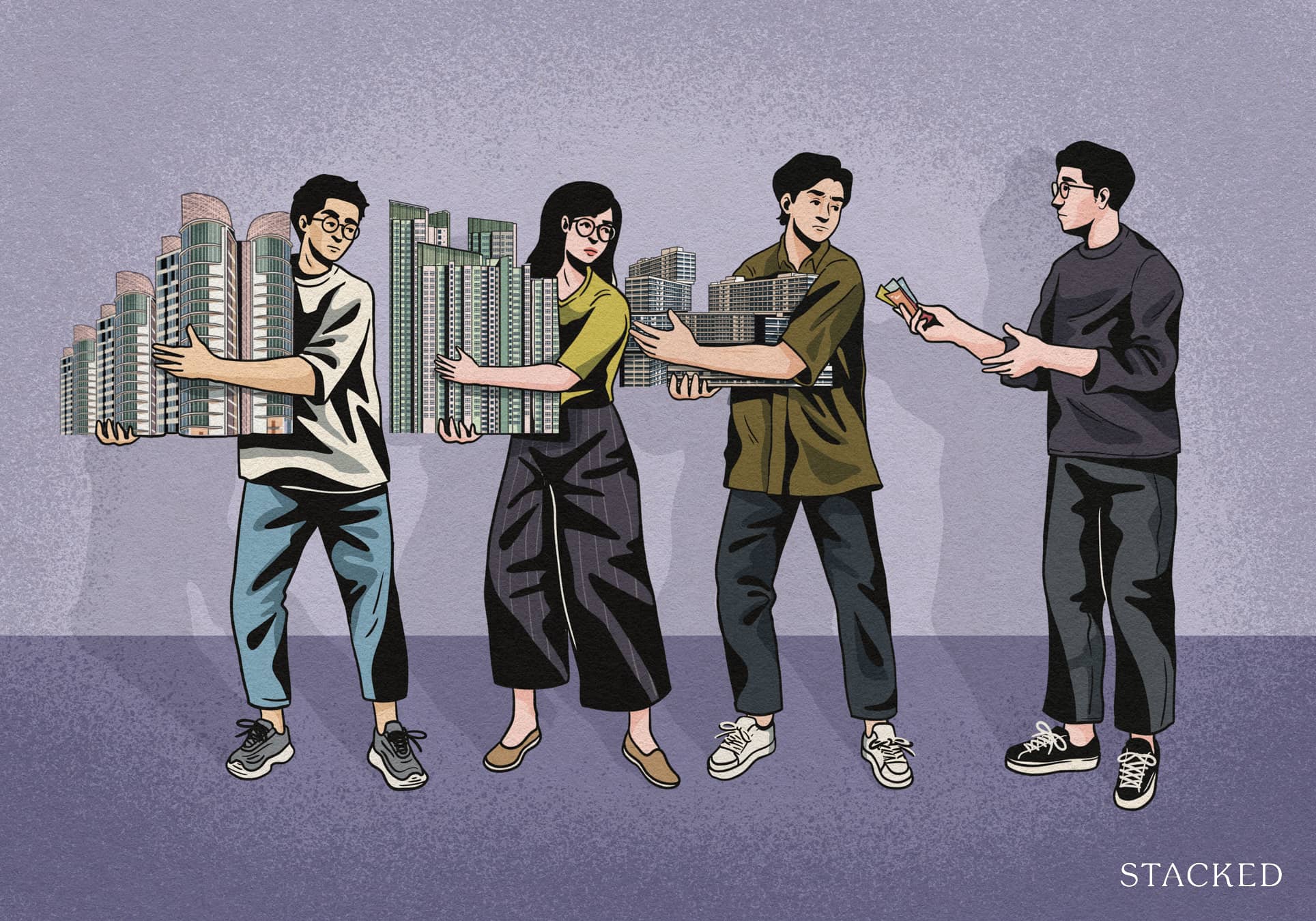
If you want to retain your flat – even after you buy a condo unit – it often means paying the 20 per cent ABSD (for Singapore citizens; it’s even higher for PRs). There may be some ways around it, like using careful planning with the owner occupier scheme, using a dual-key unit as an alternative, etc. But these aren’t always practical or available to anyone: and if you fall into that category, is it worth biting the bullet and paying the ABSD, to keep your flat? Here are a few different perspectives:
A quick note on owning a flat and a condo unit
Because this question gets asked a lot, we’re adding this clarification: Yes, you can own both an HDB flat and a condo, provided you bought the flat first. After the five-year MOP, you can purchase a private property in addition to your flat, albeit at the cost of paying 20 per cent ABSD (for citizens). Alternatively, if you’ve planned right from the beginning (using the Single Owner and Essential Occupier scheme), you could acquire an HDB and a condo without paying the ABSD.
You cannot, however, buy a condo first and then try to buy a flat later.
So many readers write in because they're unsure what to do next, and don't know who to trust.
If this sounds familiar, we offer structured 1-to-1 consultations where we walk through your finances, goals, and market options objectively.
No obligation. Just clarity.
Learn more here.
In general, the opinion regarding investment is against this move
Most property agents seemed sceptical of retaining the flat as an investment move. Even though you could recoup the cost of the ABSD eventually – through property price appreciation or rental income – the consensus is that it takes far too long, and there are probably better uses for your capital.
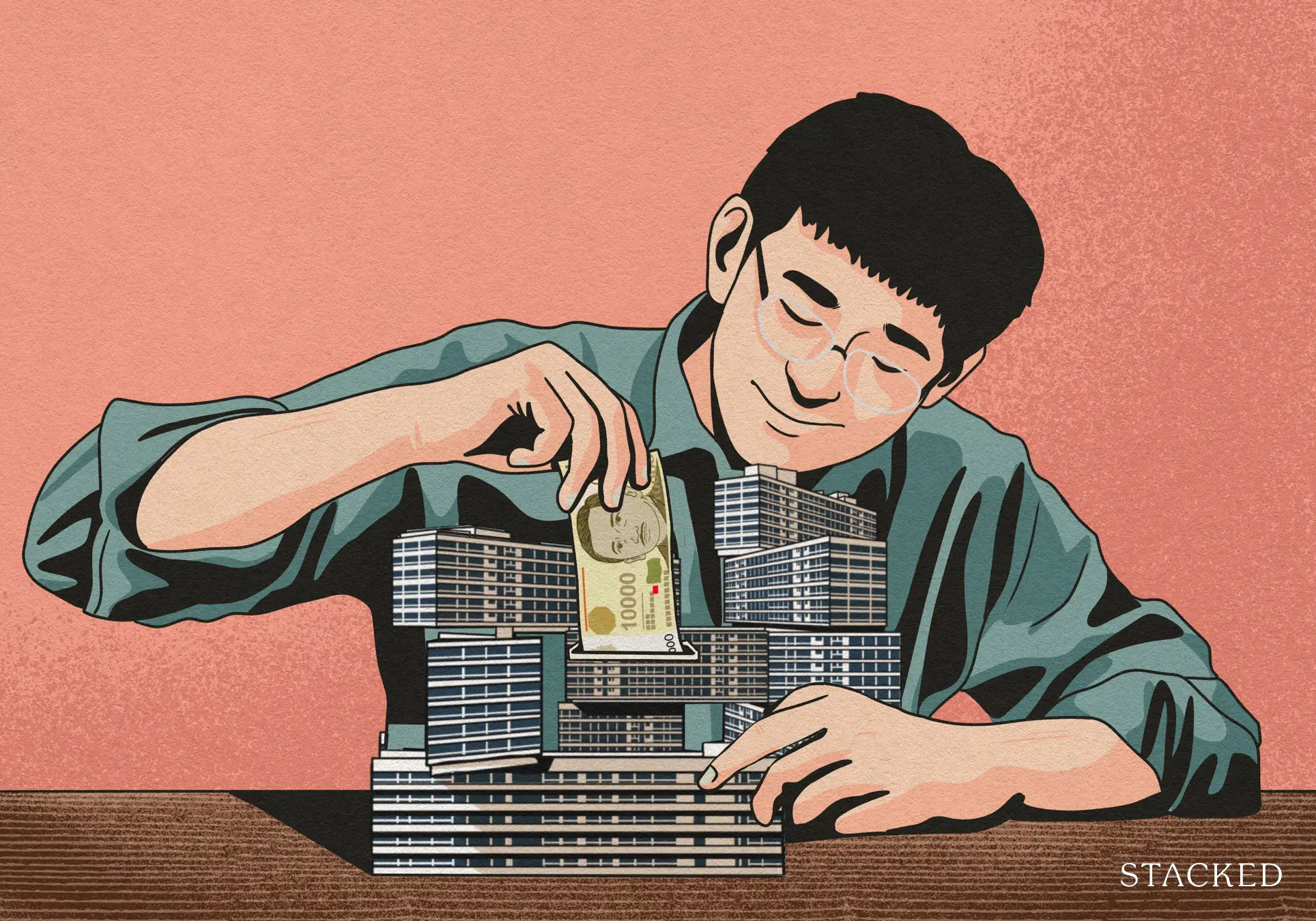
One agent gave an example of paying the ABSD on a resale three-bedder condo unit (around $1.5 million) or a new launch condo three-bedder (around $2.2 million). He noted that paying a 20 per cent ABSD on these would come to $300,000 and $440,000 respectively.
Assuming your rental income for the flat is $3,500 per month, this is about $42,000 a year before you even deduct taxes, maintenance, conservancy charges, etc. Even going by the gross rental income, it would take you just over seven years to recoup the ABSD for a resale condo, and close to 10.5 years for a new launch condo.
(After you deduct the taxes and other recurring costs, it might be closer to 8.5 years and 12.5 years to recoup the costs, for a resale and new launch respectively.)
This led the agent to conclude: “It seems pretty pointless to pay to me. It will basically knock you back by 10 years’ worth of savings; even a fixed deposit would be better.”
Another agent felt that: “You take the rental money to pay the mortgage so there’s a feel-good factor, but the money is still gone. Or you wait for the property to appreciate, but then the gains are just covering the ABSD in the end. Why go through that hassle for years? You’re better off staying put in the HDB flat, and having cash in hand.”
Another agent warned that renting out the HDB flat is not as simple as many homeowners expect:
“If you want to rent it out you need to deal with finding tenants, vetting tenants, collecting rent. It’s not really passive income. It may be easier for you to save the ABSD money, and put it in something that is less of a headache.”
However, there are also some scenarios where keeping the flat could be a good idea
Some of the situations brought up included:
1. Providing for dependants who need to live separately
One rationale for retaining the flat is to provide housing for a dependant, often a child or parents. One realtor explained that, in one instance, the client accepted the ABSD so that their daughter – who was getting married – could live in her own home without having to rent. This also meant she could stay in a familiar environment, which would ease her transition into her new life.
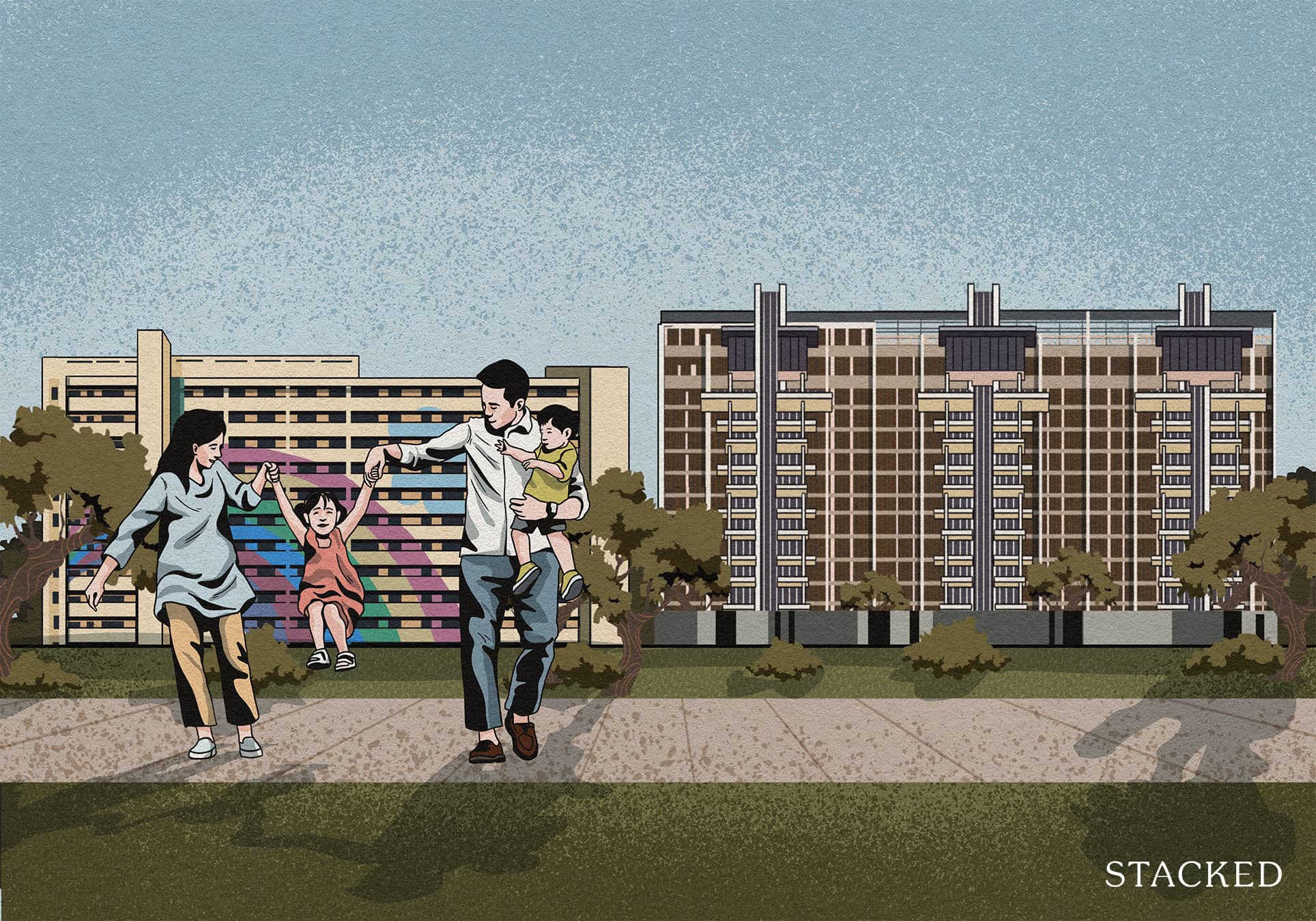
One of our readers, a homeowner, said that he chose to retain the flat even though his parents were moving in with him:
“We get along well, but I know things can change over time. When I was a kid, my parents had a lot of difficulties living with my late grandpa, and there were a lot of fights; my mother was crying every day. But we had no choice; we had to share the same place.
Just to be safe, I rather have another place that one of us can move to, if later we decide we should stay separately.”
We do wonder though, if a dual-key condo unit might resolve this issue.
2. Planning to rent out the condo instead
One homeowner, who goes by HH, has both a five-room flat and a two-bedder condo unit. The condo unit was initially purchased for his son, but he never had any intention of occupying it himself. He says:
“The plan was always to rent out the condo after my son moved out. I’m not too concerned about gains, my goal is just to keep collecting rent till the end; whatever and whenever that is.”
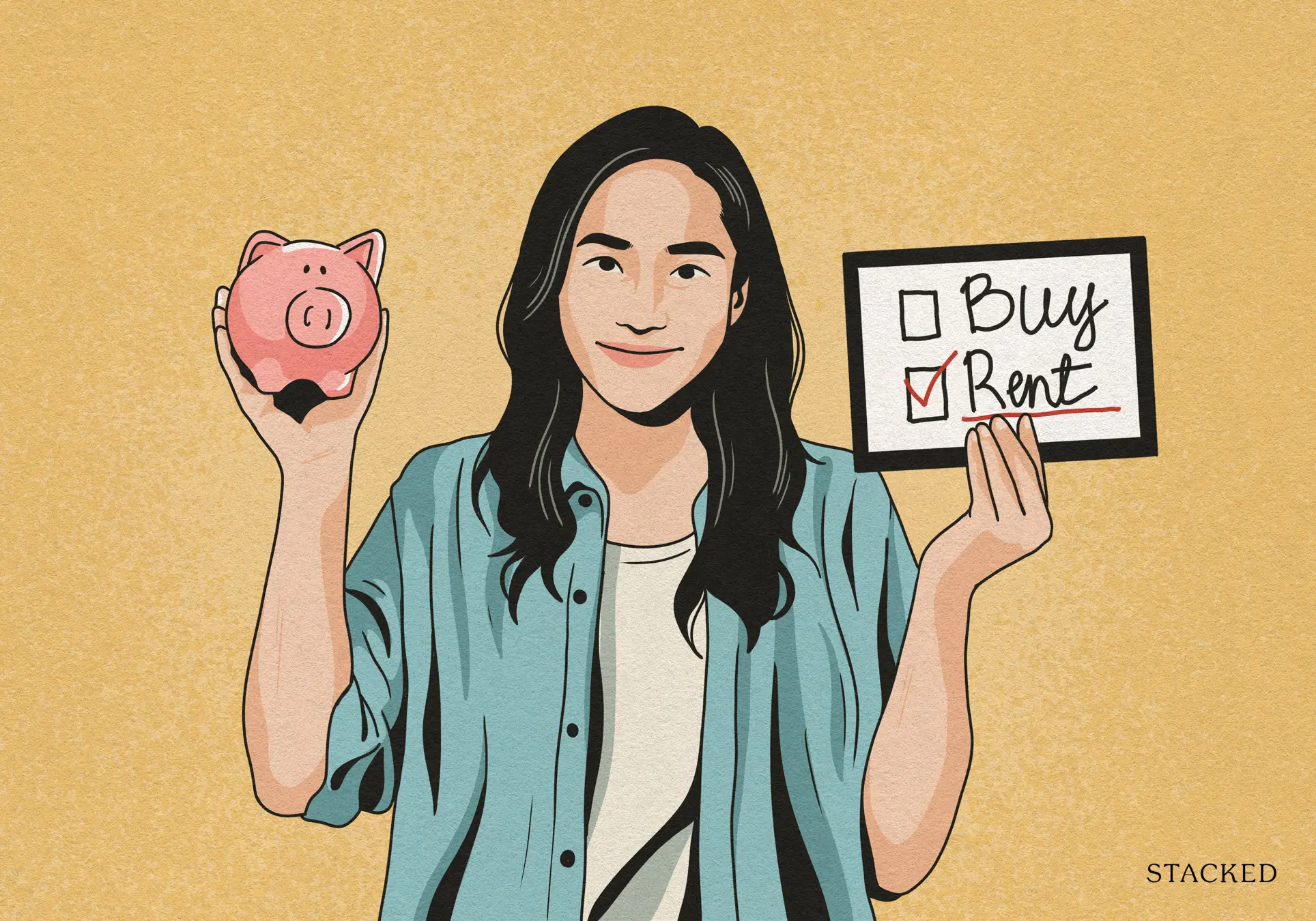
Another realtor also pointed out that, for older condo units, it’s possible for someone living in their flat and renting out a condo to be immediately cash flow positive (i.e., the rental income covers the loan repayments, maintenance fees, and other costs).
This may be enticing to investors who are simply seeking a targeted amount, such as meeting a desired Income Replacement Rate (IRR) at retirement, or who foresee loss of work/diminished income in the future.
3. Intentions to move back to the same area
Some buyers want the option of moving back to the same neighbourhood if they ever decide to sell the condo. One homeowner, who bought when the ABSD rate was lower (12 per cent), explains how he was fortunate in his decision:
“Back then I was told it’s stupid to pay so much to keep my flat, when ABSD was just 12 per cent. But I wanted to be sure that, in my retirement, I could move back to this location because it’s near the MRT, near the coffee shops, near the mall; nowadays if you try to buy here it’s over $700,000 (referring to Tampines – Ed.)
Luckily I didn’t wait, if not the ABSD would be even higher.”
This is quite dependent on how much you believe resale flat prices can rise though.
If flat prices rise at the pace we saw between Covid and the present, then maybe it’s true that (re)buying a resale flat in a desirable location may – in the long term – cost even more than paying the 20 per cent ABSD now. But there’s no guarantee that resale flat prices will keep rising at such a pace.
4. Feeling safe because you have a fallback
There’s not much to say about this one, as it’s just a matter of feeling safe. Some homeowners want to know that – if the worst happens and they’re forced to lose the condo – they at least have their flat to fall back on.
(Or they can even take the step of moving back into the flat and renting out the condo, as in point 2, which may help stem cash flow issues.)
It also means that, when they’re in dire straits, they’re not faced with the stress of selling the condo and also finding a replacement home. E.g., remember that if you sell a private property, and you’re younger than 55 years old, you need to wait 15 months before you can buy a resale flat.
So there may not be any quantifiable value to having this sense of safety; but it’s important to some homeowners.
As a parting note, you may want to know about this alternative:
You can use the owner-occupier scheme, or start with a smaller 3-room flat, to ease your way into owning two properties (a flat and a condo unit). We go into more detail on that approach in this earlier article.
Overall though, retaining the flat seems to be for very specific family and lifestyle needs, rather than financial gain. If you’re unsure whether keeping the flat works for your housing situation right now, reach out to us at Stacked for an in-depth look.
At Stacked, we like to look beyond the headlines and surface-level numbers, and focus on how things play out in the real world.
If you’d like to discuss how this applies to your own circumstances, you can reach out for a one-to-one consultation here.
And if you simply have a question or want to share a thought, feel free to write to us at stories@stackedhomes.com — we read every message.
Ryan J. Ong
A seasoned content strategist with over 17 years in the real estate and financial journalism sectors, Ryan has built a reputation for transforming complex industry jargon into accessible knowledge. With a track record of writing and editing for leading financial platforms and publications, Ryan's expertise has been recognised across various media outlets. His role as a former content editor for 99.co and a co-host for CNA 938's Open House programme underscores his commitment to providing valuable insights into the property market.Need help with a property decision?
Speak to our team →Read next from Editor's Pick

Property Advice We Sold Our EC And Have $2.6M For Our Next Home: Should We Buy A New Condo Or Resale?
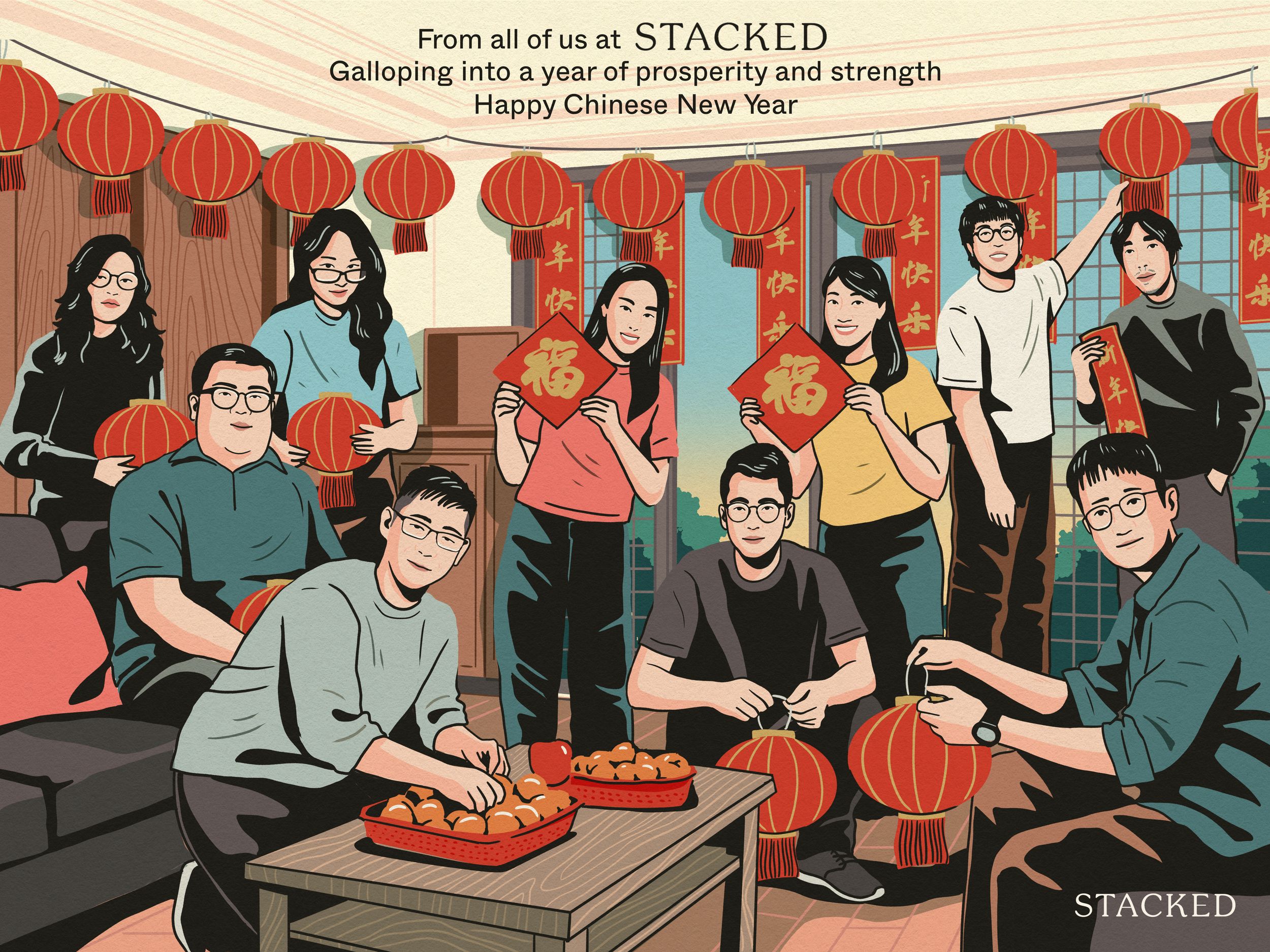
Editor's Pick Happy Chinese New Year from Stacked

Property Market Commentary How I’d Invest $12 Million On Property If I Won The 2026 Toto Hongbao Draw

Overseas Property Investing Savills Just Revealed Where China And Singapore Property Markets Are Headed In 2026
Latest Posts

Pro This 130-Unit Boutique Condo Launched At A Premium — Here’s What 8 Years Revealed About The Winners And Losers

Singapore Property News New Lentor Condo Could Start From $2,700 PSF After Record Land Bid

On The Market A Rare Freehold Conserved Terrace In Cairnhill Is Up For Sale At $16M







































0 Comments